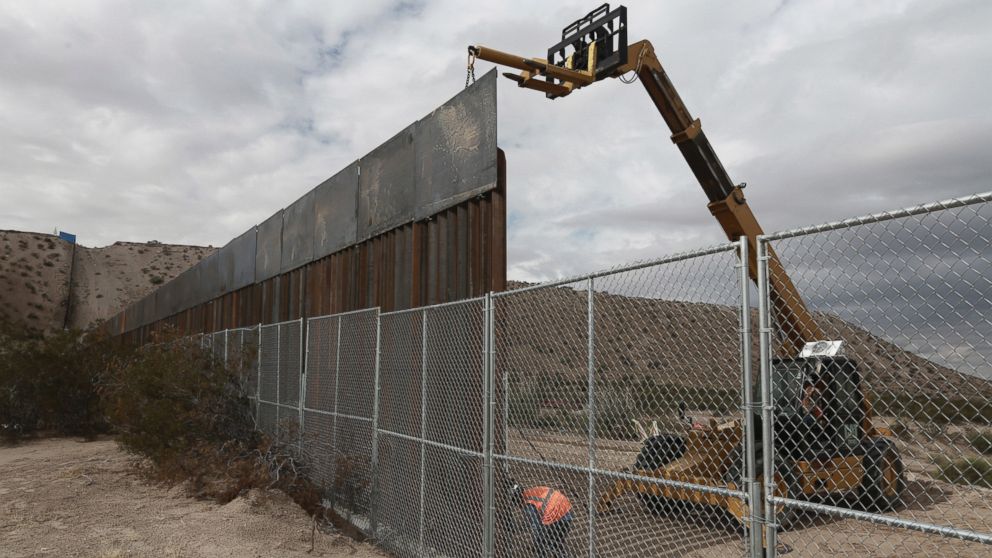CBP issues requests for border wall proposals: It will 'be physically imposing in height'
"The wall design shall be reinforced concrete," reads one of the proposals.

— -- President Donald Trump's campaign promise to build a wall along the U.S.-Mexico border came one step closer Friday to becoming a reality.
The Department of Homeland Security's law enforcement agency, U.S. Customs and Border Protection, released two formal requests for prototypes of a southern border wall.
The RFPs shed additional light on the Trump administration's plans for a wall, including its height, aesthetics and anti-climb features. The budget blueprint the White House released Thursday includes $4.1 billion for the wall.
"CBP issued two RFPs to acquire multiple conceptual wall designs with the intent to construct multiple prototypes," the agency says in a press release. "Prototyping is an industry-tested approaches to identify the best solution when considering a new product or methodology. Through the construction of prototypes, CBP will partner with industry to identify the best means and methods to construct border wall before making a more substantial investment in construction."
One Request for Proposal (RFP) is for a concrete wall, while the other is for other types of barriers.
The concrete wall RFP states, "the wall design shall be reinforced concrete" and "be physically imposing in height."
What constitute's "imposing?" According to the RFP, "the government's nominal concept is for a 30-foot high wall." But there's wiggle room. "Offerors should consider this height, but designs with heights of at least 18 feet may be acceptable. Designs with heights of less than 18 feet are not acceptable."
A key aspect to the concrete wall's design is that it is impossible for individuals to find a way to get over -- or under -- the wall.
"It shall not be possible for a human to climb to the top of the wall or access the top of the wall from either side unassisted (e.g. via the use of a ladder, etc.)," reads the RFP. "The wall design shall include anti-climb topping features that prevent scaling using common and more sophisticated climbing aids (e.g. grappling hooks, handholds, etc.)"
And the agency is also aware that some individuals may try and go under the wall. "The wall shall prevent digging or tunneling below it for a minimum of 6 feet below the lowest adjacent grade," reads the RFP.
And don't even think about breaching the wall. "The wall shall prevent/deter for a minimum of 1 hour the creation a physical breach of the wall (e.g., punching through the wall) larger than 12-inches in diameter or square using sledgehammer, car jack, pick axe, chisel, battery operated impact tools, battery operated cutting tools, Oxy/acetylene torch or other similar hand-held tools."
While the wall will serve a functional purpose, the CPB isn't completely putting substance over style,
"The north side of wall (i.e. U.S. facing side) shall be aesthetically pleasing in color, anti-climb texture, etc., to be consistent with general surrounding environment," reads the RFP. It's unclear what the view from Mexico will be.
ABC News' Jack Date contributed to this report.


